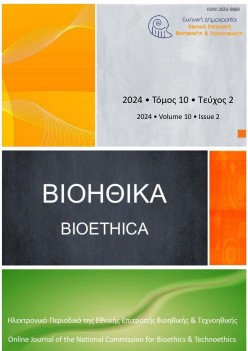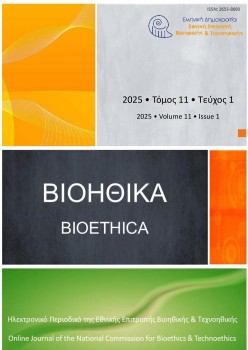Legal Regulation of the Doctor-Patient Relationship in the Czech Republic: Development and Current State, with a Practical Focus on Gynecology and Obstetrics

Abstract
The article focuses on the development of the relationship between doctor and patient and subsequent legal regulations in the Czech Republic from the beginning of the 20th century to the present. First, it delves into the evolution of the relationship between doctor and patient in the territory of the Czech Republic, providing an overview of important historical events that profoundly influenced the creation of sources and some institutes. Subsequently, it analyzes the current situation in the Czech Republic, subjecting it to a critical evaluation. The author, above all, questions whether the relationship between doctor and patient is truly a partnership and an equal one. The article then addresses persistent inequalities and differences between the rights and obligations of the patient and the doctor. The conclusion acknowledges that, considering the nature of the relationship, it may not be possible to completely eliminate these persistent inequalities. Based on the findings, partial conclusions are formulated, summarizing the individual stages and transformations of this relationship. The analysis of the current state of the relationship between doctor and patient includes a focus on important judicial decisions from practice and how they set limits for the autonomy of the patient's will. In this article, the author primarily concentrates on significant court decisions in the field of gynecology and obstetrics, analyzing how the autonomy of the patient's will is limited in this area in relation to specific situations.
Article Details
- How to Cite
-
Schwarzová, A. (2024). Legal Regulation of the Doctor-Patient Relationship in the Czech Republic: Development and Current State, with a Practical Focus on Gynecology and Obstetrics. Bioethica, 10(2), 55–69. https://doi.org/10.12681/bioeth.39044
- Section
- Reviews

This work is licensed under a Creative Commons Attribution 4.0 International License.
Authors who publish with this journal agree to the following terms:
- Authors retain copyright and grant the journal right of first publication with the work simultaneously licensed under a Creative Commons Attribution CC BY 4.0 License, which allows for immediate free access to the work and permits any user to read, download, copy, distribute, print, search, or link to the full texts of articles, crawl them for indexing, pass them as data to software, or use them for any other lawful purpose. Appropriate credit must be given by citing the author(s) and the original publication in this journal.
- Authors are able to enter into separate, additional contractual arrangements for the non-exclusive distribution of the journal's published version of the work (e.g. post it to an institutional repository or publish it in a book), with an acknowledgement of its initial publication in this journal.
We encourage authors to deposit their articles, as well as data underlying the publications, in institutional and/or other appropriate subject repositories.
Bioethica permits and encourages authors to archive the final publication pdf in institutional (e.g. the repository of the National Hellenic Research Foundation) or other appropriate subject repositories (e.g. SSOAR repository for social sciences), in compliance with institutional and/or funder open access policies, after publication in the BIOETHICA. Authors must provide bibliographic details that credit publication in the journal, as well as related funding details (when applicable).
Lists of institutional and other subject-based academic open access repositories can be found listed by country at the registry http://opendoar.org/countrylist.php
If your institution does not possess a repository you may deposit a copy of your paper at no cost with www.zenodo.org , the repository supported for open access research in the EU by the European Commission, through the project OpenAIRE (www.openaire.eu )



